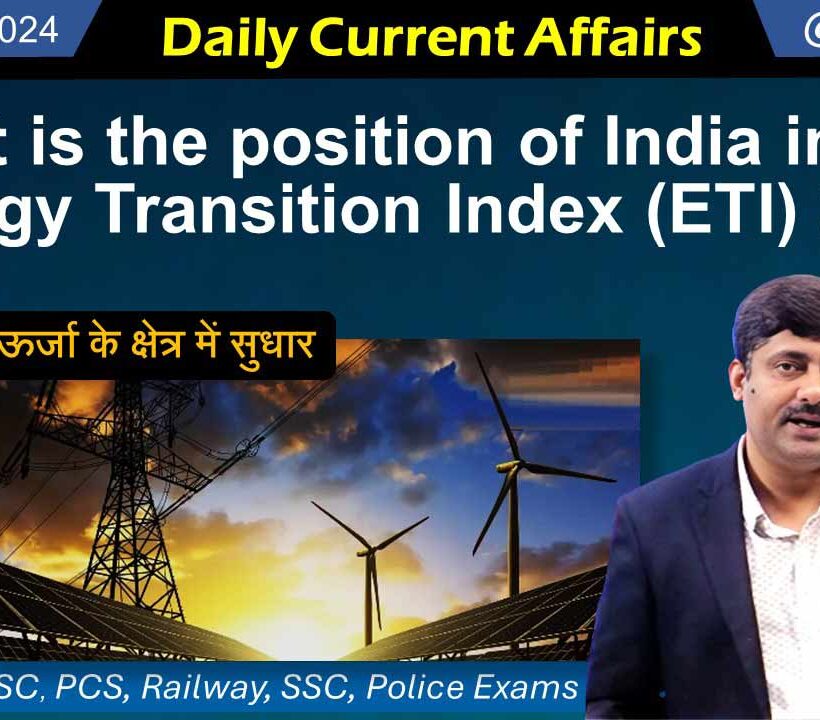This is the current affairs of 25 June 2024. Here are questions and answers of daily current affairs for better preparation of competitive exams for government jobs.
PDF Download: Click here
1. Kerala Assembly once again passed the proposal to change the name of the state to what, which was earlier returned by the Center?
a. Tiruvar
b. Keralam
c. Kerluvam
d. Chennai
Answer: b. Keralam
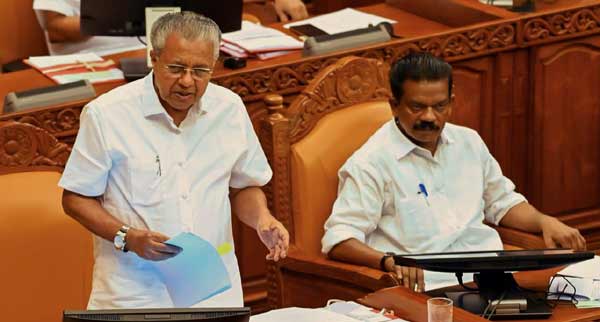
– Kerala’s Chief Minister Pinarayi Vijayan once again presented the proposal to rename Kerala as Keralam in the assembly on June 24, 2024. It was passed unanimously.
– Earlier, on August 9, 2023, the Kerala Assembly had passed a similar proposal, but it was sent back by the central government due to procedural issues.
– The recommendation to change the name has now been sent to the central government again.
– The state’s name will be changed only after receiving consent from the central government.
– Without the central government’s consent, the name cannot be changed.
What is the rationale behind the name change?
– Chief Minister Pinarayi Vijayan said, “The state’s language is Malayalam, and according to this, the state’s name should be Keralam.”
– Since the time of the national independence movement, the need for a united Kerala for Malayalam-speaking communities has strongly emerged. – However, in the first schedule of the Constitution, the state’s name is written as Kerala.
– The Kerala Assembly has requested the central government to immediately amend the state’s name to Keralam according to Article 3 of the Constitution. Additionally, it should be included in all the languages listed in the Eighth Schedule of the Constitution.
About the Eighth Schedule of the Constitution:
– The Eighth Schedule of the Constitution includes a total of 22 languages.
– These languages are Assamese, Bengali, Gujarati, Hindi, Kannada, Kashmiri, Konkani, Malayalam, Manipuri, Marathi, Nepali, Odia, Punjabi, Sanskrit, Sindhi, Tamil, Telugu, Urdu, Bodo, Santali, Maithili, and Dogri.
What does Article 3 of the Indian Constitution state?
– Article 3 of the Indian Constitution pertains to the formation of new states and changes to the areas, boundaries, or names of existing states.
– It grants special powers to the Parliament. Using these powers, the Parliament can create a new state by separating territory from any state or by uniting two or more states or parts of states, increase or decrease the area of any state, alter the boundaries of any state, or change the name of any state.
Kerala:
– Chief Minister: Pinarayi Vijayan
– Governor: Arif Mohammed Khan
– Capital: Thiruvananthapuram
—————
2. When is the International Day of the Seafarer celebrated?
a. 23 June
b. 24 June
c. 25 June
d. 26 June
Answer: c. 25 June
Theme 2024
– Seafarers’ contributions to making the maritime sector a safer workplace
– This day is celebrated to honor the significant contributions made by seafarers to global trade and the economy.
– The Day of the Seafarer was first celebrated in 2011.

————–
3. Haryana government announced to create 23rd new district by separating it from Sonipat district, name it?
a. Naraun
b. Gohana
c. Ganaur
d. Kharkhauda
Answer: b. Gohana
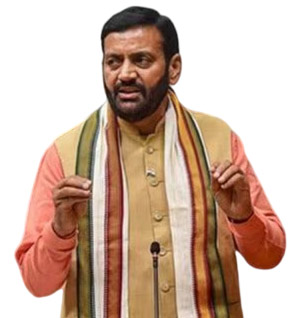
– Haryana’s Chief Minister Nayab Singh Saini announced this on June 22, 2024.
– He said, “There are some rules for the formation of a new district, and as soon as those rules are fulfilled, our government will make Gohana a separate district.”
– A committee has also been formed for the creation of new districts.
– Gohana will now be the 23rd district of the state.
– Currently, Gohana is part of the Sonipat district and shares its border with the national capital.
– A government official mentioned that to become a district, the population must be more than four lakh.
– There is a requirement of 80,000 hectares of land, more than 125 villages, 1-2 sub-divisions, and 1-3 tehsils.
– However, these criteria can change.
Haryana:
– Capital: Chandigarh
– Chief Minister: Nayab Singh Saini
– Governor: Bandaru Dattatreya
– Language: Haryanvi
– Population: 25,351,462 (2011)
– Neighboring states: Punjab, Himachal Pradesh, and Rajasthan.
The Yamuna River forms its eastern border with Uttarakhand and Uttar Pradesh.
————–
4. Which country is ranked first in the Energy Transition Index 2024 of the World Economic Forum (WEF)?
a. India
b. Sweden
c. Switzerland
d. Pakistan
Answer: b. Sweden
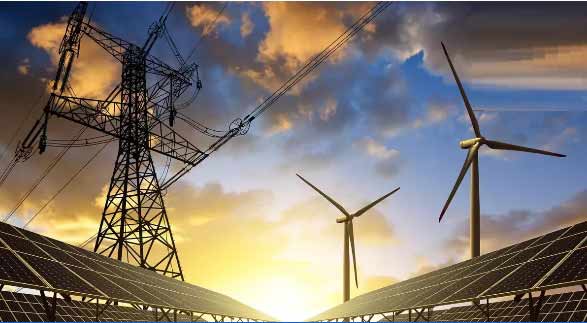
– The World Economic Forum (WEF) has released the Energy Transition Index 2024.
– Energy transition means shifting from fossil fuels to renewable energy sources.
– The WEF published this list in collaboration with Exchanger in June 2024.
– The report states that amidst the global energy crisis and geopolitical instability, global energy transformation has slowed down.
– This means the pace of improvement in energy transition has decelerated.
– As usual, European countries dominate the top ranks in the 2024 Global Energy Transition Index.
Top 10 countries:
1. Sweden
2. Denmark
3. Finland
4. Switzerland
5. France
6. Norway
7. Iceland
8. Austria
9. Estonia
10. Netherlands
Sweden:
– Capital: Stockholm
– Monarch: Carl XVI Gustaf
– Prime Minister: Ulf Kristersson
– Currency: Swedish Krona
– Joined NATO: March 2024
– Neighboring countries: Norway, Finland, Denmark
– Seas: Baltic Sea and Skagerrak Strait
————–
5. In the Energy Transition Index 2024, what is India’s ranking?
a. 47
b. 57
c. 50
d. 63
Answer: d. 63

– India has been ranked 63rd in the World Economic Forum’s (WEF) Global Energy Transition Index.
– In the previous ranking (2023), India was ranked 67th.
Improvements in the Energy Sector:
– The survey of this index states that the rank achieved by India shows remarkable improvement in the areas of energy equity, security, and sustainability.
– This ranking reflects India’s ongoing efforts to adopt renewable energy, enhance energy security, and promote sustainable development.
– China, a global powerhouse in energy consumption and production, secured the 20th position in the index.
– Regarding the roles of China and India, the World Economic Forum stated that with nearly one-third of the global population, these two countries will play significant roles.
– Both countries have experienced progress in renewable energy development, improved energy access, and energy security.
World Economic Forum (WEF):
– German economist Klaus Schwab founded the WEF in 1971 as a non-profit international organization to find common solutions to global issues and provide a platform.
– Headquarters: Cologny, Switzerland
————–
6. Which of the following was declared India’s first UNESCO ‘City of Literature’?
a. Kozhikode
b. Chennai
c. Varanasi
d. Kolkata
Answer: a. Kozhikode
UNESCO – United Nations Educational, Scientific and Cultural Organization
– The city of Kozhikode in Kerala has been awarded the title of ‘City of Literature’ by UNESCO.
– Kerala’s Minister of Local Self-Government, M.B. Rajesh, announced that UNESCO made this declaration on June 23, 2024.
– Kozhikode earned the title of ‘City of Literature’ from UNESCO, surpassing cities with rich cultural histories like Kolkata, thus securing a place in the literature category.
UNESCO Creative Cities Network (UCCN)
– In October 2023, Kozhikode secured a place in the literature category of the UNESCO Creative Cities Network (UCCN).
– Kozhikode has over 500 libraries and has been a center for the literary activities of the renowned Malayalam author M.T. Vasudevan Nair for several decades.
– Additionally, Gwalior, another city in the Indian state of Madhya Pradesh, has been included in the music category.
– Hence, along with Kozhikode, Gwalior is also among the cities that have joined the UCCN.
– Other cities around the world that have received tags from UNESCO include Bukhara in the crafts and folk arts category, Casablanca in the media arts category, Chongqing in the design category, and Kathmandu in the film category.
UNESCO
– Established: November 16, 1945
– Member countries: 195
– Headquarters: Paris, France

————–
7. Who became the first Indian to win the title in the WTT Contender women’s singles category?
a. Shivani Mishra
b. Sreeja Akula
c. Neelam Sharma
d. Archana Kamath
Answer: b. Sreeja Akula
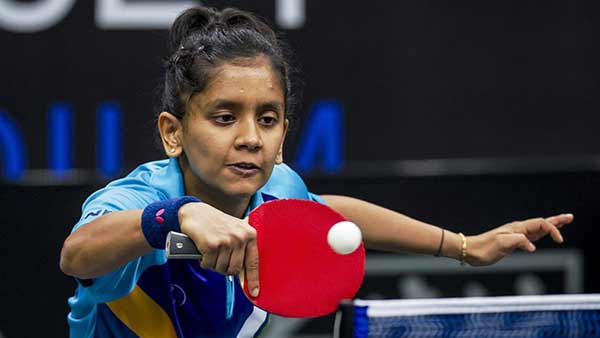
– They defeated China’s Ding Yijie in the final on June 23, 2024, with a score of 4-1.
– Shreya and her partner Archana Kamath also clinched victory in the women’s doubles.
– Shreya Akula has already qualified for the Paris Olympics.
– She was honored with the Arjuna Award in the year 2022.
– The tournament was held in the city of Lagos, Nigeria.
Gold in Women’s Doubles as Well
– Shreya, along with Archana Kamath, secured another gold in the women’s doubles category by defeating the duo Diya Chitale and Yashaswini Ghorpade 3-0.
– India also won the gold medal in the men’s doubles category.
What is WTT Contender?
– WTT Contender is a table tennis tournament series organized by World Table Tennis (WTT).
– This series is part of WTT, which is governed by the International Table Tennis Federation (ITTF).
– WTT Contender tournaments feature top players from various countries.
– The primary purpose of this tournament is to provide players with world ranking points and prize money.
————–
8. The Central Government issued the rules of the ‘Public Examination (Prevention of Unfair Means) Act, 2024’, what is the maximum punishment provided in it?
a. Seven years imprisonment and 20 lakh fine
b. Nine years imprisonment and 50 lakh fine
c. Eight years imprisonment and 2 crore fine
d. Ten years imprisonment and minimum one crore fine
Answer: d. Ten years imprisonment and minimum one crore fine
– After being passed by both houses of Parliament, President Daupadi Murmu gave her consent to this bill on February 13, 2024.
– Following the leakage of NEET exam papers, the central government issued regulations related to this law in June 2024.
– The National Recruitment Agency (NRA) has been granted the authority to establish standards, norms, and guidelines for computer-based examinations.
Public Examinations (Prevention of Unfair Means) Act 2024
– The purpose of this law is to prevent “inappropriate methods” to ensure “greater transparency, impartiality, and credibility” in the public examination system.
Punishment provisions under the law
– The proposed law suggests a minimum of three to five years of imprisonment for imposing penalties on fraud, while those involved in organized crimes of fraud could face imprisonment ranging from five to ten years along with a minimum fine of 1 crore rupees.
– This law provisions for penalizing officials or organizations involved in malpractice during examinations.
– The objective of the law is to deter organized groups and institutions engaged in illicit practices for monetary gain, while also protecting candidates from its provisions.
Under the law, what constitutes malpractice (unfair means)?
– Malpractice (unfair means) in public examinations refers to monetary or wrongful gains.
– It includes leaking question papers, involving in bribery related to such leaks.
– Gaining unauthorized access to question papers or Optical Mark Recognition (OMR) response sheets.
– Tampering with answer booklets, including OMR response sheets.
– Providing solutions to one or more questions asked by an unauthorized person during a public examination.
– Offering direct or indirect assistance to a candidate during a public examination.
Which exams are included in law?
– UPSC (Civil Service Exam, CDS, CMSE, ESE)
– SSC (Staff Selection Commission)
– RRB
– IBPS
– JEE (Main)
– NEET-UG
– UGC-NET
– CUET etc.
————–
9. When is the International Day against Drug Abuse and Illicit Trafficking observed?
a. 26 June
b. 27 June
c. 28 June
d. 29 June
Answer: a. 26 June
– This day was declared by the United Nations in 1987.
– The issue of drug abuse is a complex problem that affects millions of people worldwide.
– Many individuals who use drugs face stigma and discrimination, which can harm their physical and mental health further.
PDF Download: Click here

